While it’s no secret that you should do a home inspection when buying a house, today I’ve got 8 tips to help you make the most of it. You might think any old home inspector will do, but that’s far from the truth. Here is the inside scoop to hiring a good inspector, what to look for during an inspection, and how to utilize the report to your advantage. I’m here as your “friend in the industry,” to help you become a more informed buyer. I want you to get the best deal possible on your next home!
Other Posts in This Series:
4 Must-Do Projects Before You Sell Your House
30+ Budget Tips to Stage a Home for Sale
DISCLAIMER: I am a licensed Realtor, but I am not a licensed home inspector or an attorney; please consult the professionals involved in your particular home purchase and contracts. This blog post is chock-full of opinions, but I do try to stay in my lane.

Diving Deep into Home Inspections
In this post, I’ll cover these four sections.
My 8 secrets to a great home inspection are covered in parts 2 and 3.
1: Who Should Get a Home Inspection?
2: How to Hire a Great Home Inspector
3: How to Ensure a Thorough Inspection is Conducted
4: How to Proceed With Your Inspection Results
PART 1: Who Should Get a Home Inspection?
Almost everyone buying a house should get an inspection. Period. It’s just silly to spend so much money on a property without an inspection, unless you are planning to scrape the house and build new. If you Google “why get a home inspection,” you’ll find a ton of resources explaining these reasons: gaining peace of mind, learning of minor and major potential issues, providing a bargaining chip for a better deal (or repair), and offering an “out” if you no longer want to buy the house.
If you’re trying to buy a house in a hot seller’s market, you might hear whispers of buyers who *gasp* skip the inspection. I still think it’s a bad idea. There are other ways to write an appealing offer.
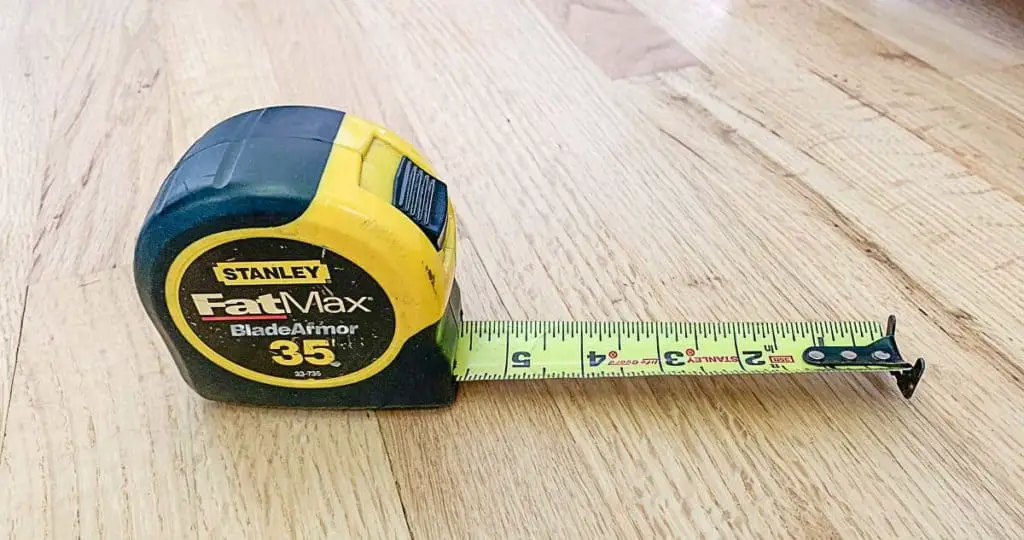
PART 2: How to Hire a Great Home Inspector
OK, I’ve got a few tips to help you hire a GREAT home inspector. This is the first critical step in getting the best home inspection possible.
- Do your own research!
- Look for ASHI or InterNACHI certification
- Choose an inspector before you go under contract
- Plan for relevant add-on services
Do Your Own Research
If you start this process by scheduling an inspection with the first person recommended by your real estate agent, you are rolling the dice. Did you buy the very first car you ever test drove? (If yes, then I guess this strategy works for you. Stop reading!)
Here’s my rationale: it’s human nature for agents to want to close the deal. Agents are required to act in a client’s best interest but… he or she might also prefer inspectors who don’t tend to find a bunch of problems. Is this entirely ethical? Not really. But are you catching my drift here? You should be prepared to advocate for your own best interests, as the buyer.
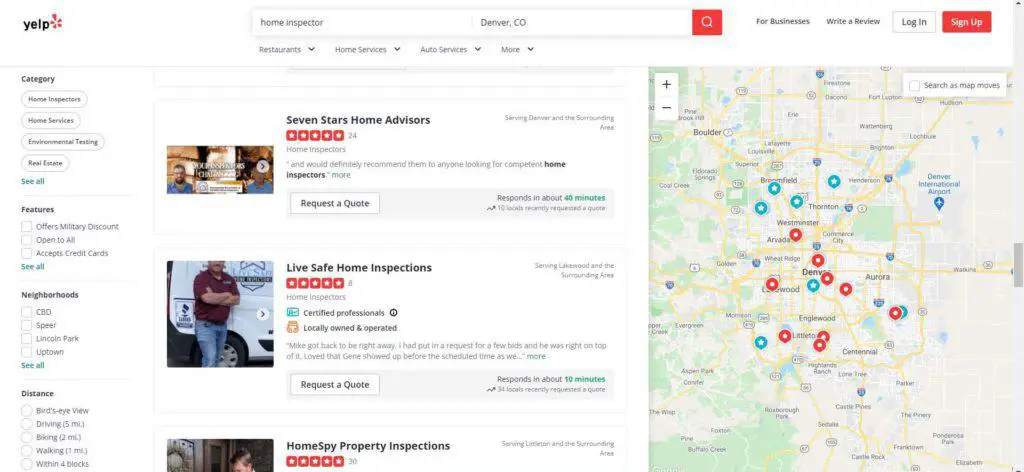
Read reviews, get referrals from friends who’ve recently bought houses, and call inspectors’ references. If anyone ever calls me, you can bet I’ve got a boatload to say! In fact, I plan to hire the inspector who almost killed our previous home sale; he was so nit-picky that our buyers had a great bargaining position – and we had already fixed up that house! I was almost afraid they wouldn’t be able to get home insurance, but it all worked out for everyone.
ASHI or InterNACHI Certification
As far as I know, these are the two major home inspector associations: ASHI and InterNACHI. Plus, states have different certification requirements. It’s worth hiring someone who has the highest level of training and certification, because that shows experience and commitment to the industry. Consider this factor along with trusted reviews of their work; certification alone means nothing if the inspector isn’t great at the job.
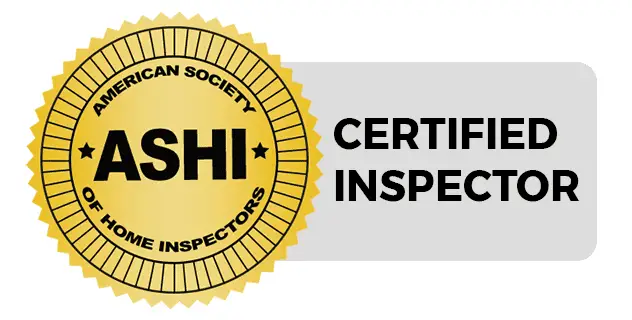
Choose an Inspector BEFORE You Go Under Contract
While this is not standard practice, it should be! It’s makes so much sense to have an inspector in mind before you go under contract. As soon as your offer is accepted and signed by all parties, the clock starts ticking and you have deadlines to meet. The home inspection typically happens quickly and you might only have a few days to complete it. The last thing you’ll want to do is scramble to find a great home inspector.
Typically, real estate agents will have suggestions for home inspectors, due to the rapid deadlines. I explained my reservations about this above. If your agent is a trusted friend, then of course, listen to them. However, if you have time to do your own research, it’s in your best interest to take that on.

Say Yes to Add-On Home Inspection Services
It’s a great idea to ensure your home inspector can perform any additional services that you’ll need. In Denver, we always request a radon test and a sewer scope when we get home inspections. For example, in our neighborhood, the 60-year-old maple trees tend to rip up our sewer lines, so a sewer scope is critical in case we need to negotiate a repair. Radon is also a common issue in our area, so we loop that test in with the home inspection. I want to pay one person to coordinate these tests, not run around finding a bunch of inspectors.
PART 3: How to Ensure a Thorough Inspection is Conducted
Congrats! You’re under contract and trying not to panic about all that needs to happen in the next 30 days… (or whatever your terms may be). Here’s how to make sure your home inspection is as thorough as possible. Let’s call these “best practices” for a home inspection.
- Meet your home inspector on-site
- Do your own inspection simultaneously
- Confirm additional tests are completed
- Ask questions in-person
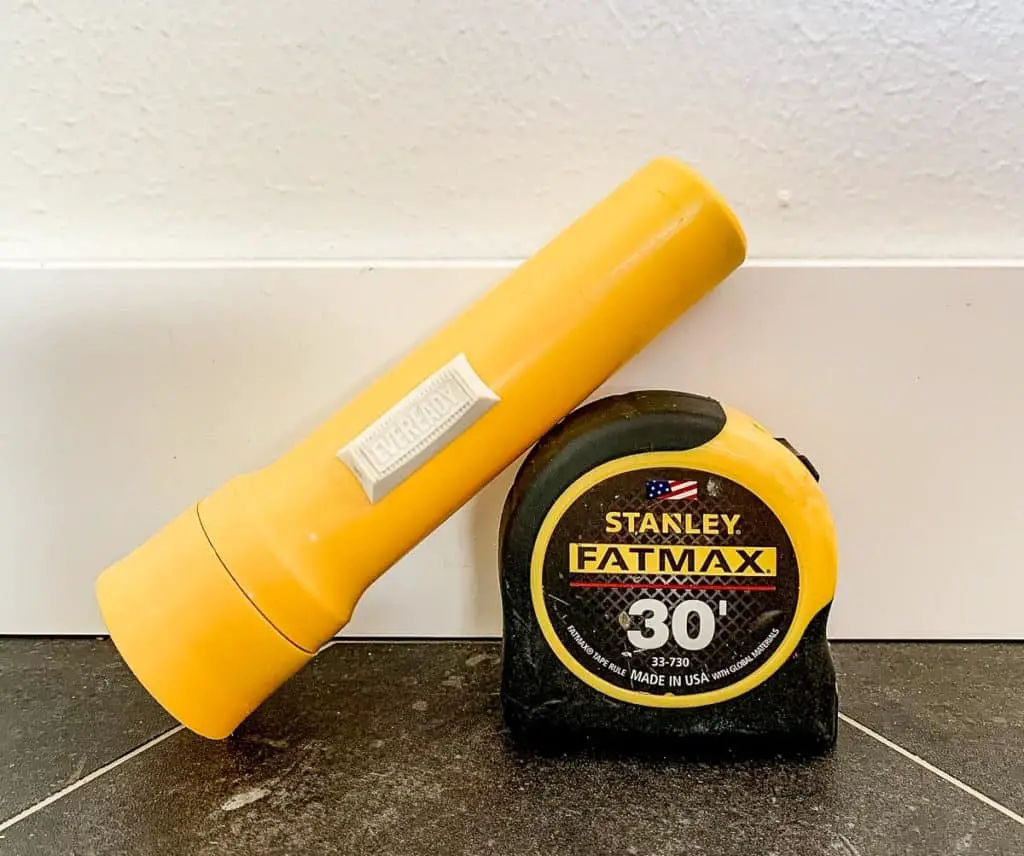
Be Present During the Home Inspection
I can’t undersell the importance of speaking with the inspector on-site. If you are present, the inspector will probably be more thorough while conducting the work. He or she will also be able to explain the information while it’s fresh and help you understand which issues are priorities to fix. Plus, you’ll be paying this person $300-600 for a few hours of work, so there’s a reasonable expectation that they will do a solid job!
If you are not present and just look at an inspection report afterward that catalogs problems, it could feel overwhelming. For example, sometimes there are gray areas, like items that don’t meet code but aren’t truly problematic. You’ll need to understand the difference between those issues and big-ticket problems that should be resolved ASAP.
Here’s an example. I recently toured and photographed this really cute bungalow, which you’re seeing throughout this post. Walking up to the front door, I noticed there is hardwood flooring on the front porch! This is not an outdoor material and it will need to be replaced sooner rather than later. I would hope an inspector would catch this and mention it as a bad design decision, although it’s not a safety or health hazard.
> The Best Flooring for Every Room in Your House <
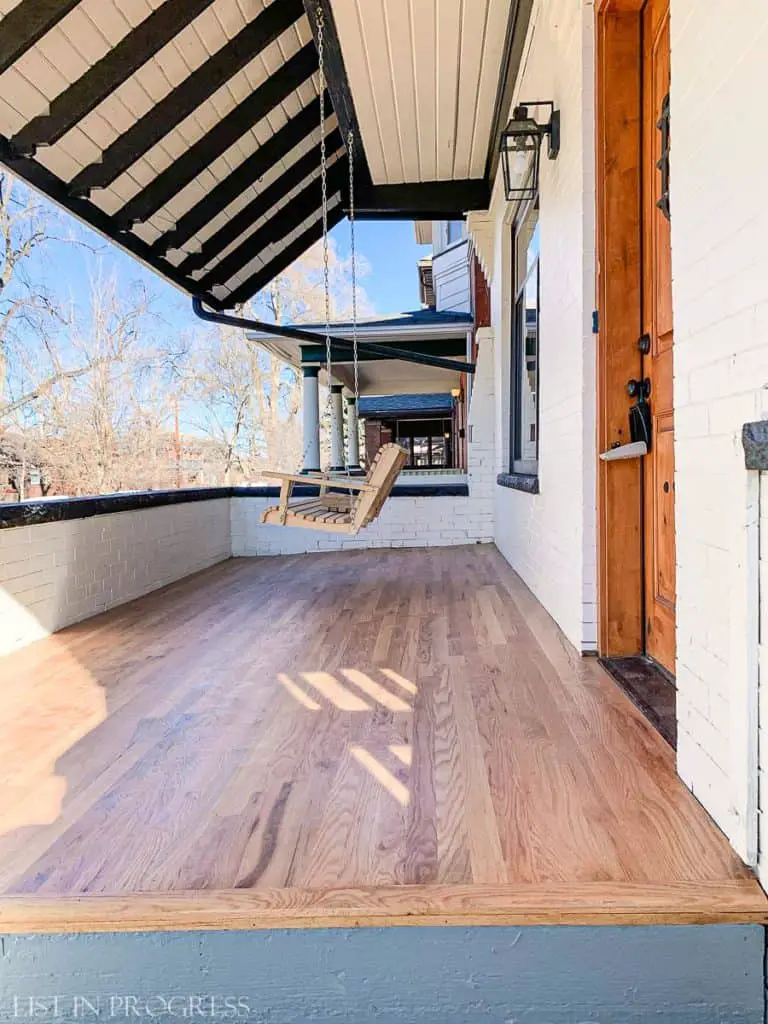
Another example: all original houses in our current 1965-era neighborhood have aluminum wiring. While that no longer meets code for new construction, it doesn’t mean that our homes are going to burn down. There are safe workarounds that can be completed without rewiring an entire house. We’ve chatted with inspectors and electricians about this, and it’s not a deal-breaker for us as buyers. However, I can see how a less-informed buyer might be scared when aluminum wiring shows up as a potential fire hazard on an inspection report.
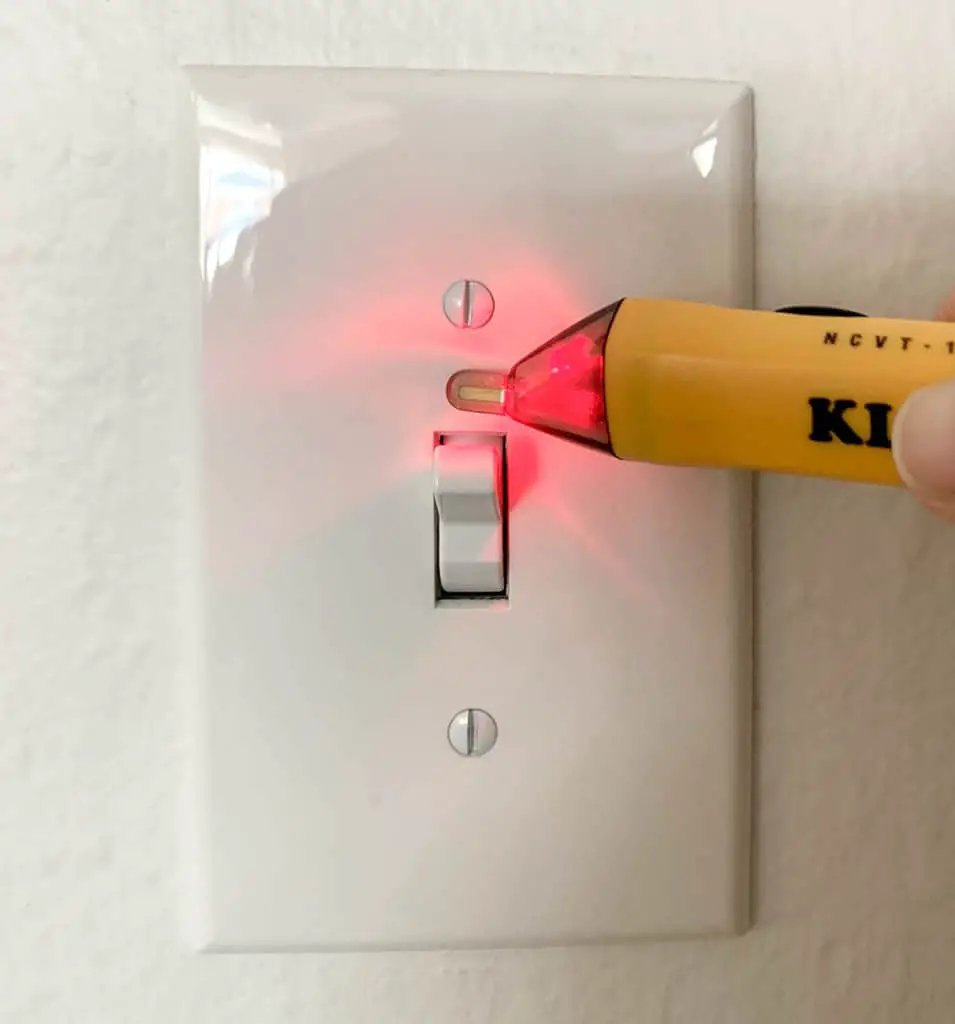
Do Your Own Home Inspection Simultaneously
Your home inspection will be one of your first opportunities to get a closer look at the house you’re buying. Bring a tape measure and flashlight, or use your phone. This is a great chance to measure windows for blinds if you’ll want those installed quickly. Take your time walking through the home and noting any changes you need/want to make. Here is a good 13-point checklist to take with you.
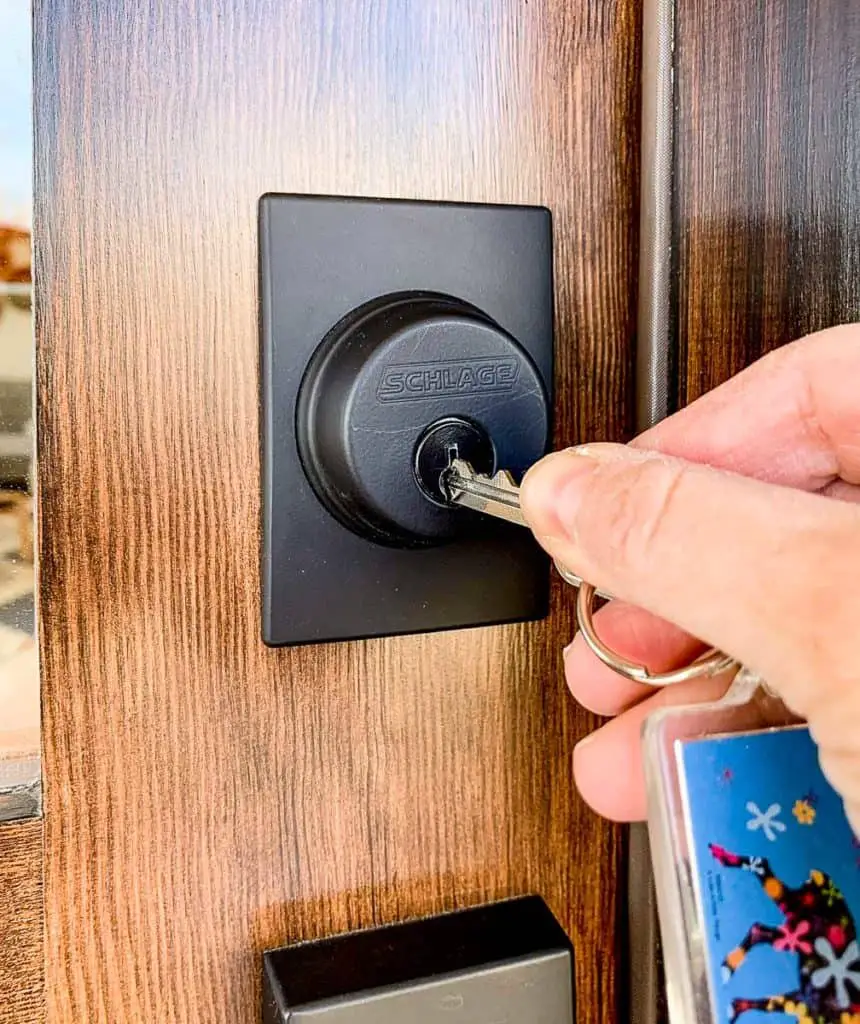
> Tips to Install and Stain a New Front Door <
Think Like a Raindrop
I have always wanted to write that. Wyatt and I met while we worked for the Appalachia Service Project many moons ago, and I’m sure any of our ASP friends reading this are laughing right now. ASP is an emergency home repair nonprofit, and we were well-trained to “think like a raindrop” when assessing houses and repair work. Here’s what it means in a home inspection:
Water trickles downhill, so starting at the roof, think about all the places water can get into a home. Make sure the shingles overhang the gutters, with a clear path to drain away from the home. Check for any unusually rotted siding, window, or door trim, which indicates a water problem. Consider the slope of the land; it should be graded away from the house, so you don’t end up with water flooding the basement during spring storms.
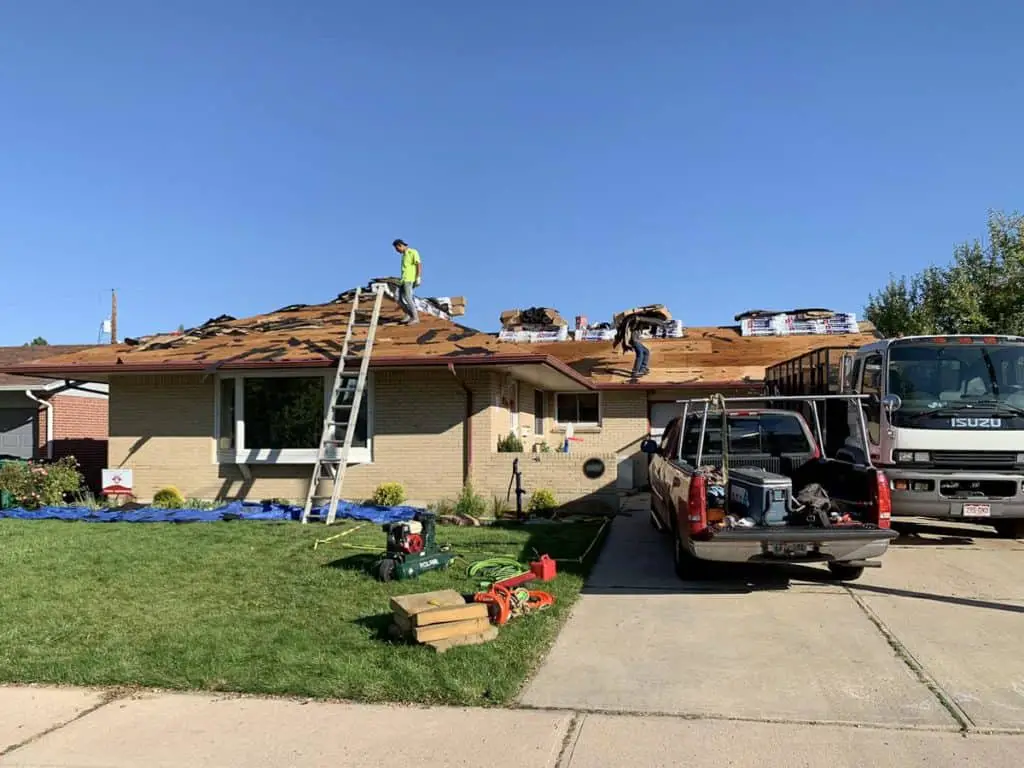
Inside the home, look at the ceilings; water stains are an indicator of a potential leak from the roof or bathrooms above. Look for solid grout and caulk lines in bathrooms, kitchens, and any other wet tile spaces. Also, pay attention to floors; soft spots indicate a problem, which may not even be water-related. (Floors should also be level.)
I bet you’ll “think like a raindrop” the next time you look at a house for sale!
Complete Any Additional Home Inspection Tests
Now is the time for any additional tests you’ve decided to run. Do you need to test for radon? Do you want to swab any walls or trim looking for lead paint? Will your inspector scope your sewer line and include that in the report? Make sure you know which services are included in your inspection and schedule any coordinating tests to occur during your visit to the house. This is your most timely opportunity.
Here’s the radon test running in our basement, before we bought our house. (Yes – this wallpaper and carpet are totally bananas! We bought a fixer-upper, remember?)
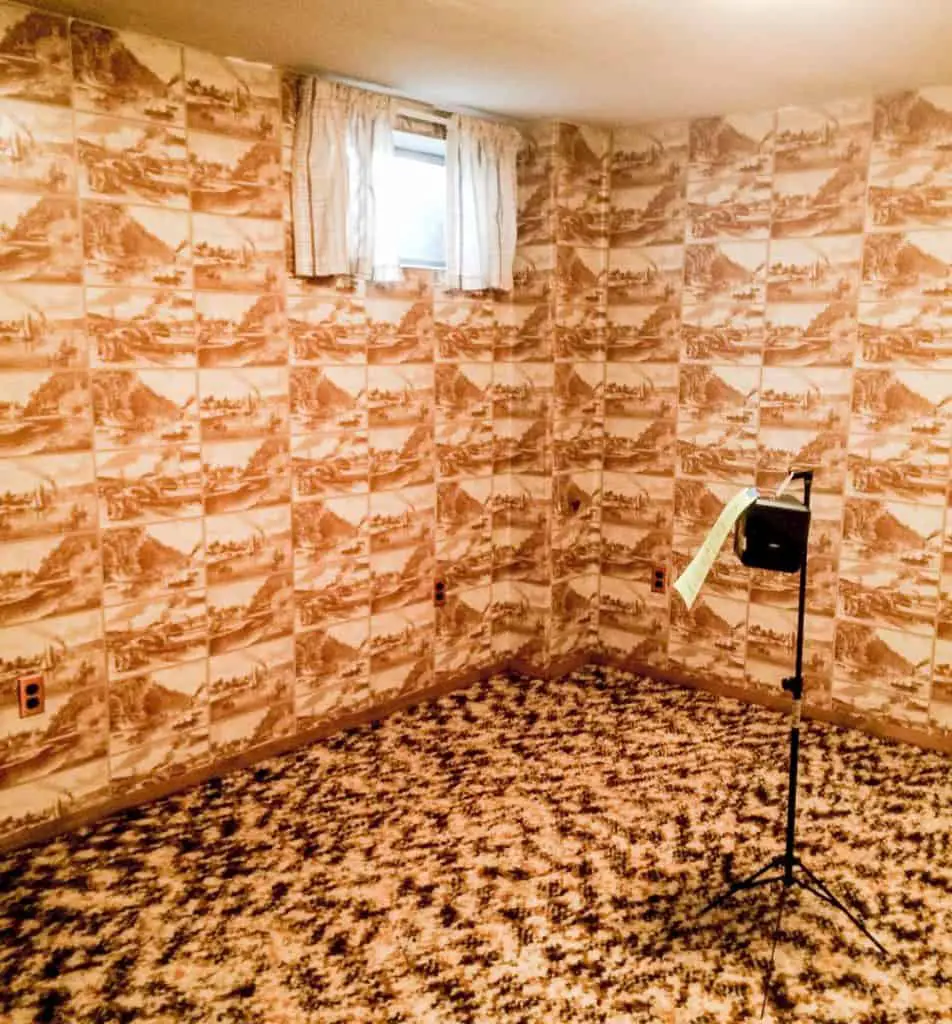
Ask Questions While You Meet With Your Inspector
Because your home inspection will probably run 3-4 hours long, you should have time to chat with the inspector. Take advantage of this opportunity! Arrive at the appointment with questions in mind, and take plenty of notes when you walk the property yourself. It’s much easier to get the inspector’s advice and opinions while you’re all on-site together and can investigate issues.
PART 4: What Now? How to Proceed With Your Inspection Results
If you or the inspector noticed any red flags during the home inspection, your real estate agent will help you decide the best course of action. Hopefully, you’ll be able to negotiate a solution for all parties. If you find a deal-breaker, it could be an out, as long as you meet the contract deadlines. These are reasons why a home inspection matters! Please know that I am not offering legal advice, and you should consult your agent or an attorney with questions about the contract.
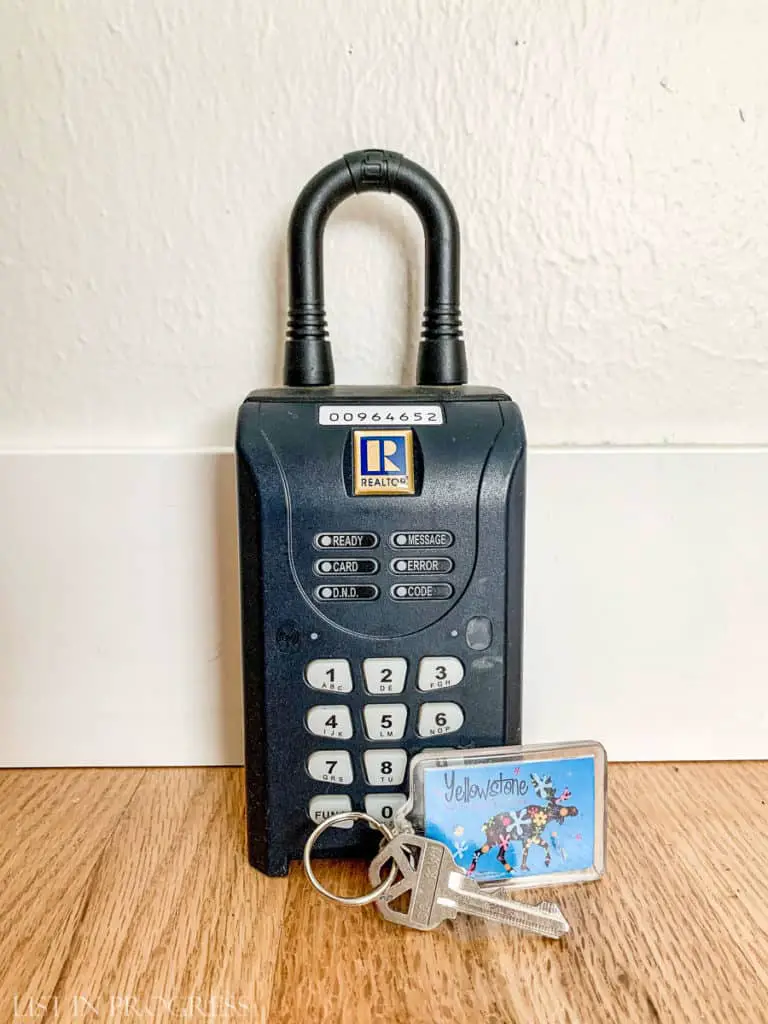
Go Forth and Inspect With Confidence
Good luck with your next home inspection. I hope you feel empowered to schedule a thorough inspection, and I hope you find your next dream home!
Other Posts in This Series:
4 Must-Do Projects Before You Sell Your House
30+ Budget Tips to Stage a Home for Sale
More DIY Remodeling Inspiration from List in Progress

1 – How to Create Craftsman-Style Door Trim
2 – Best Exterior Behr White Paint Colors
3 – The Best Flooring for Every Room in Your House
4 – 2021 Cabinet Hardware Trends






